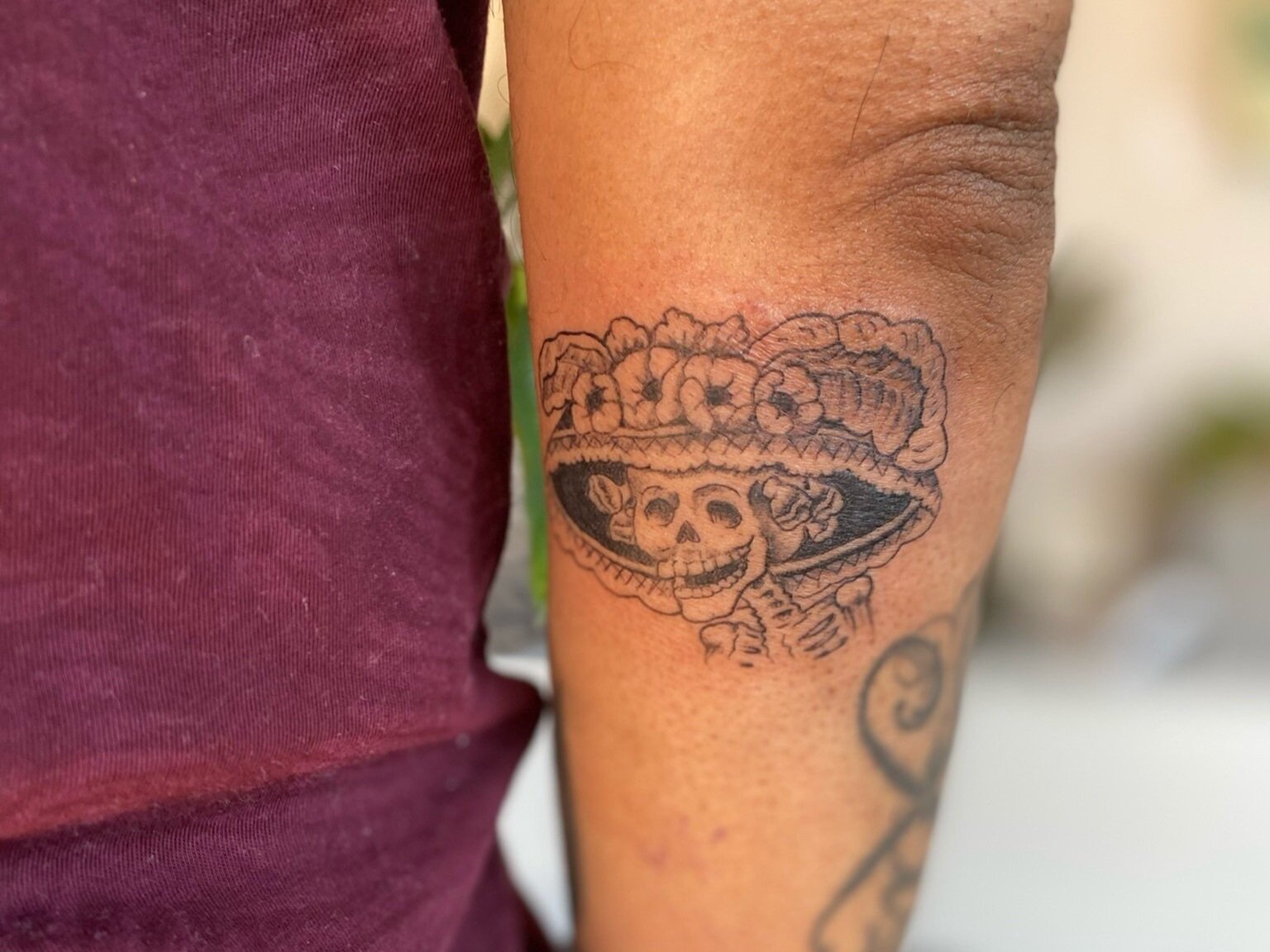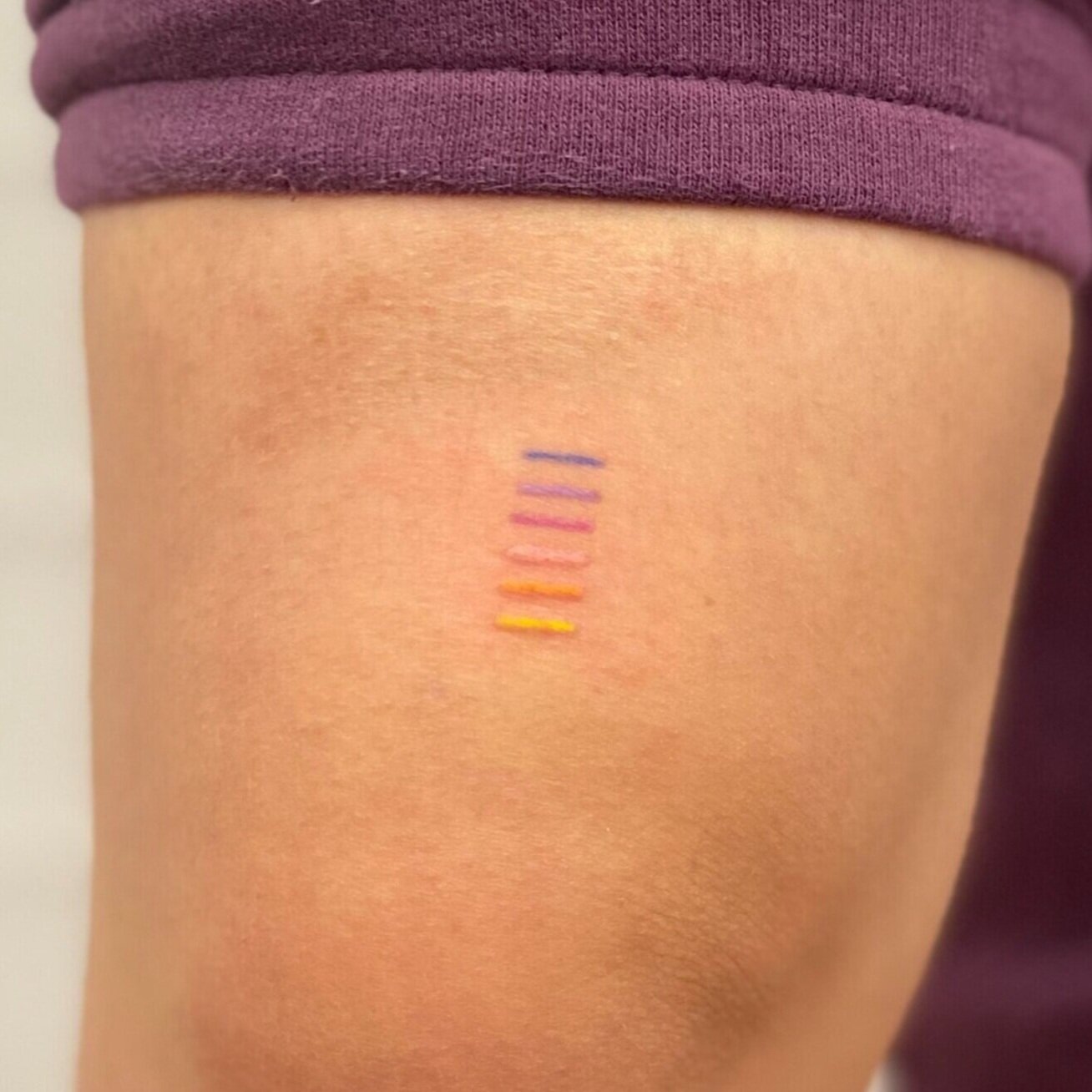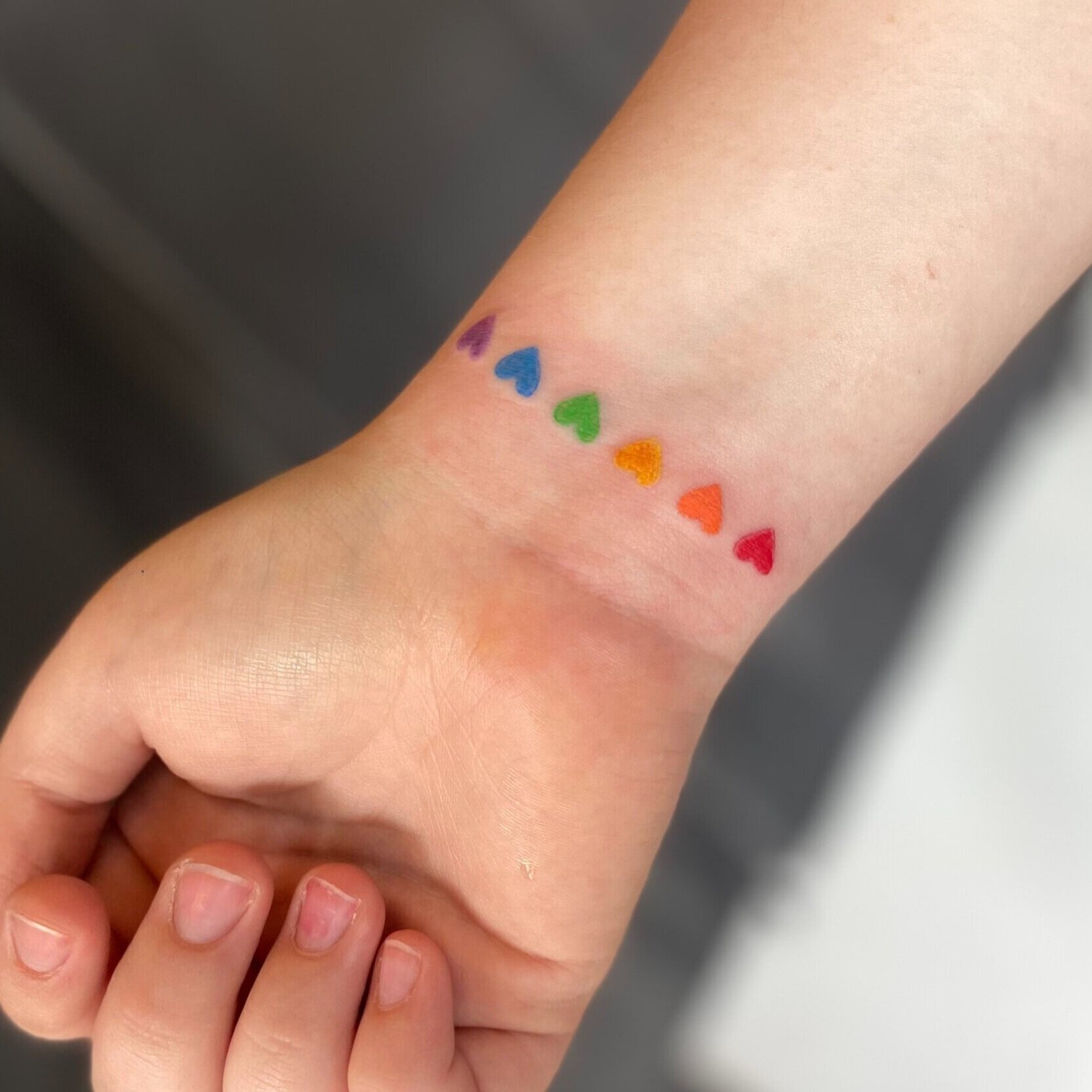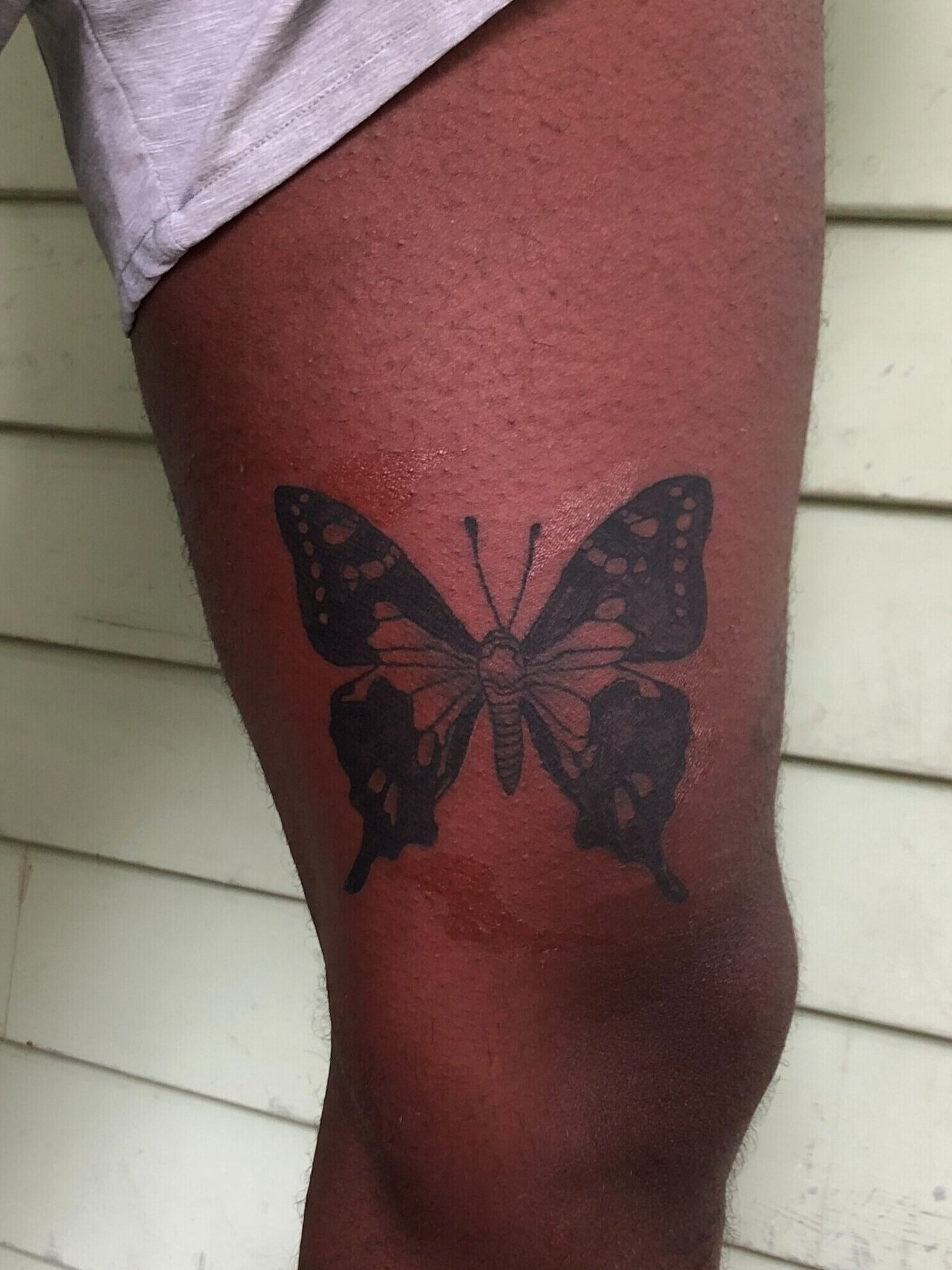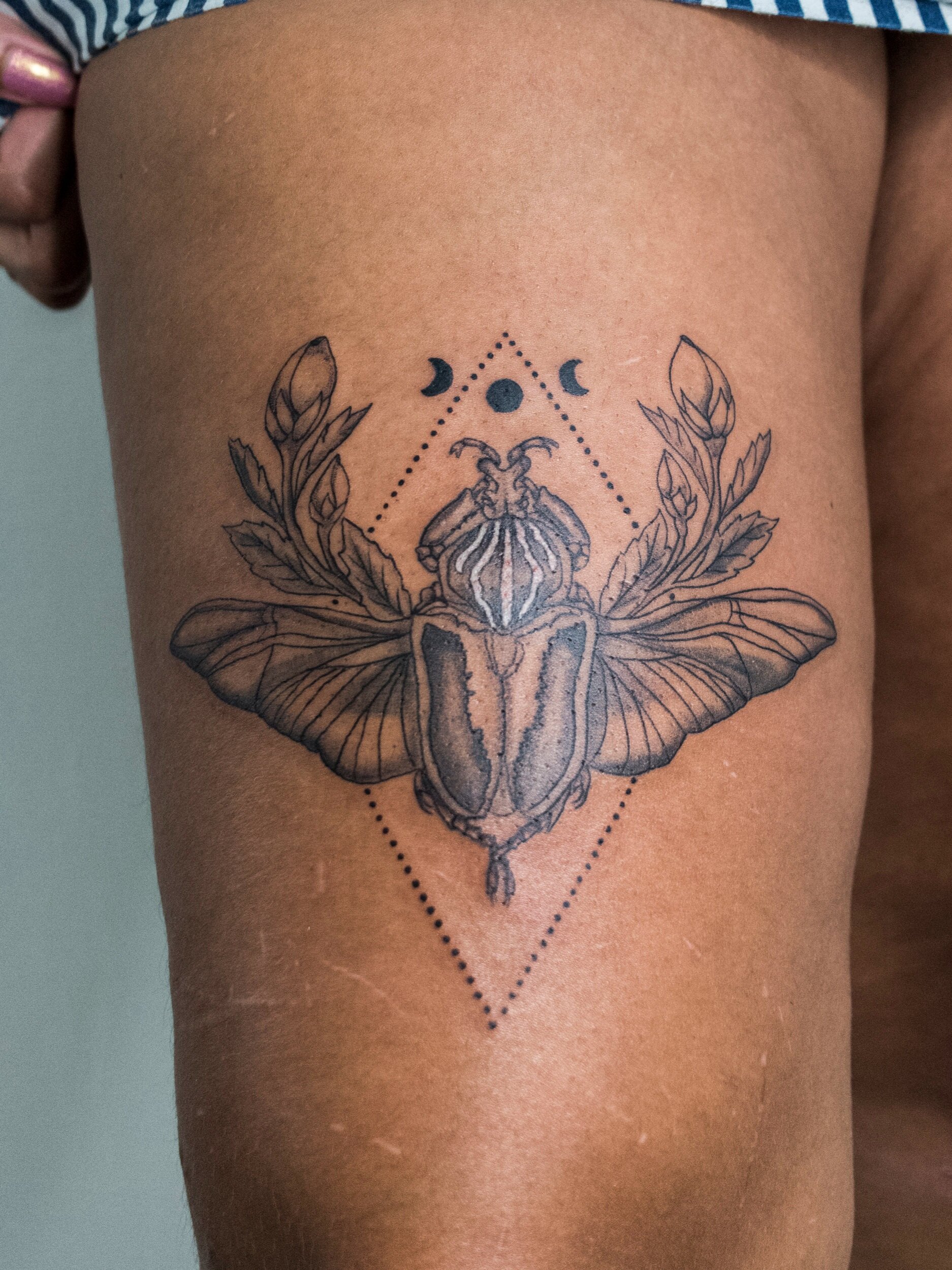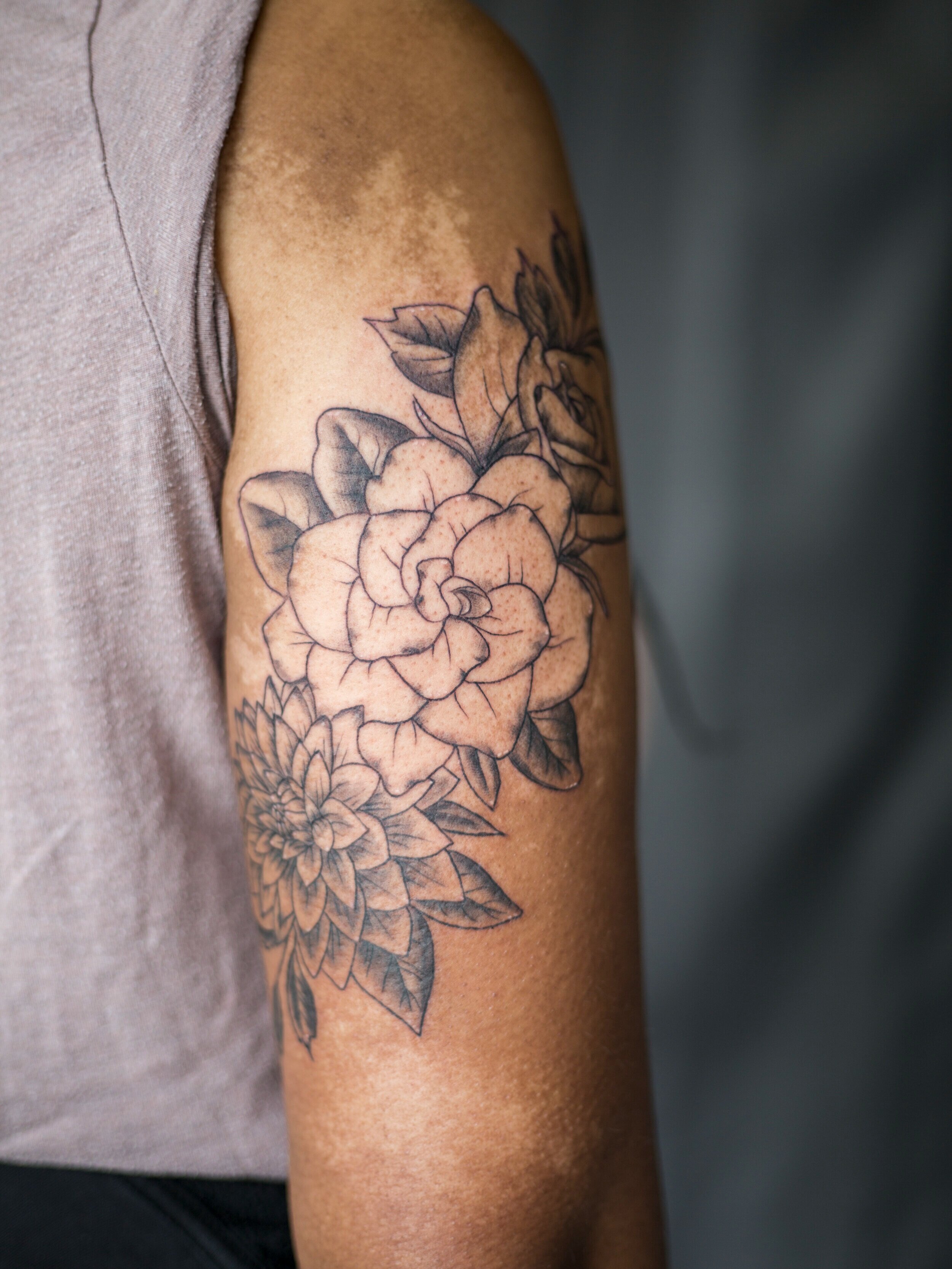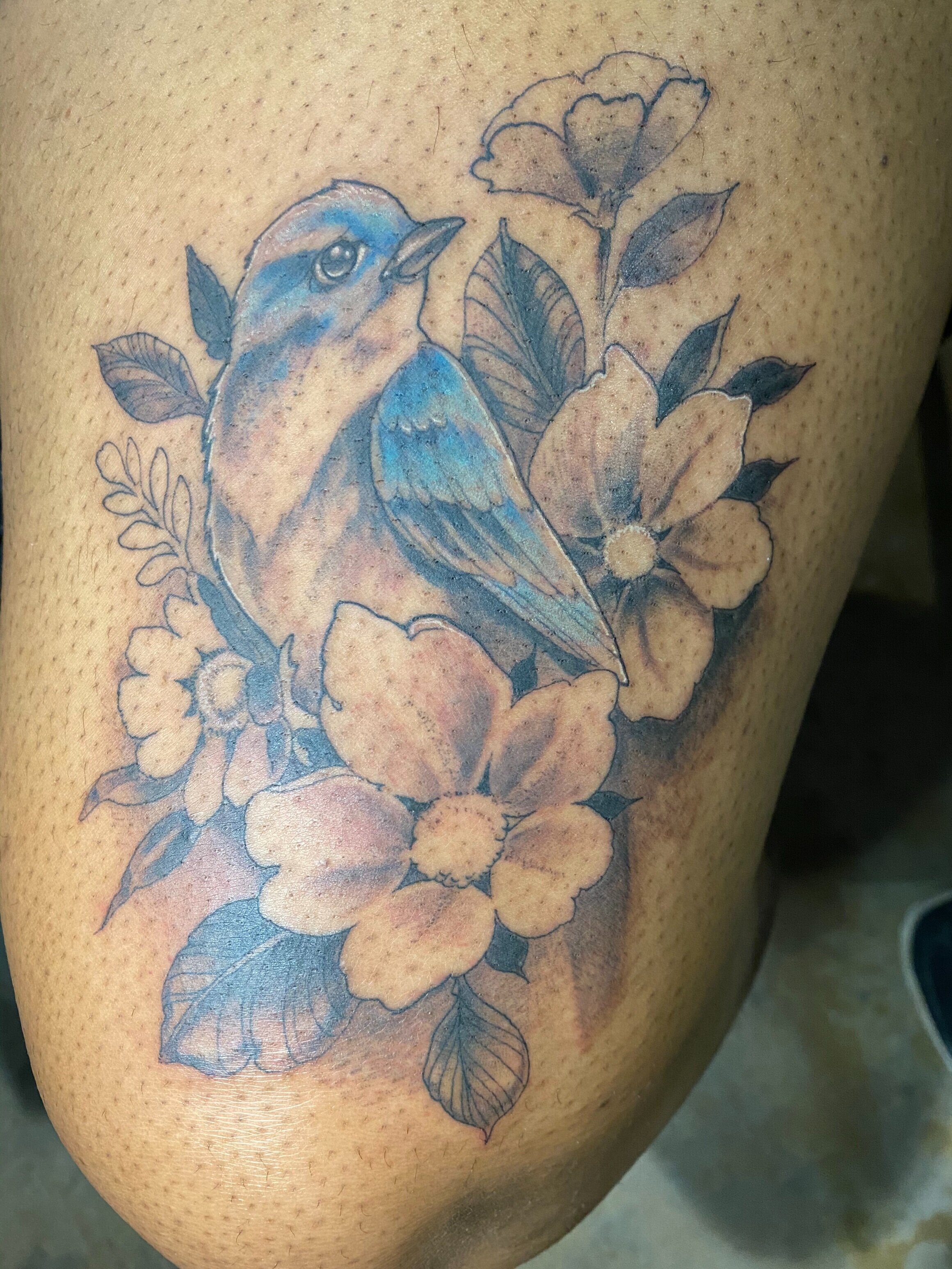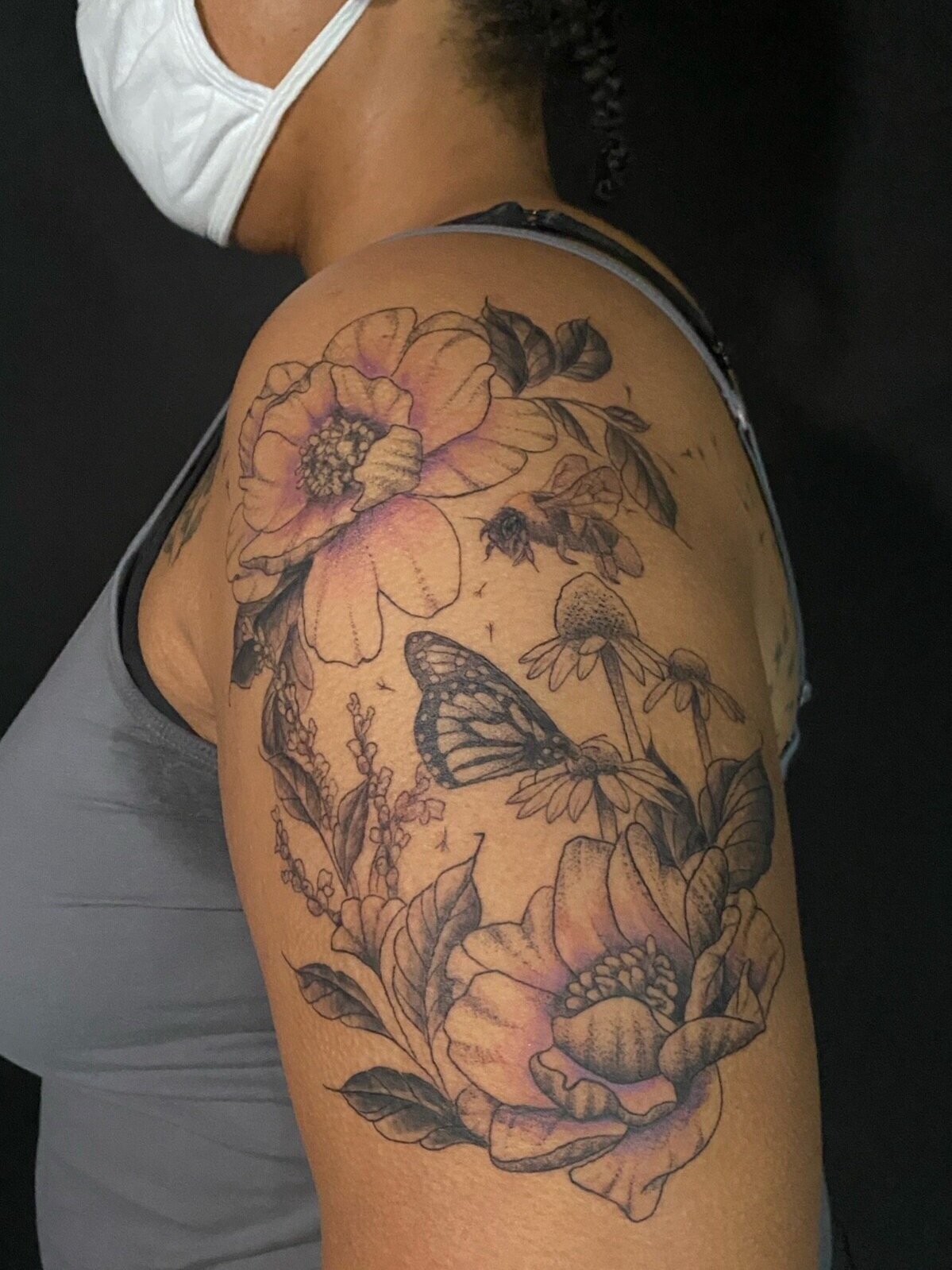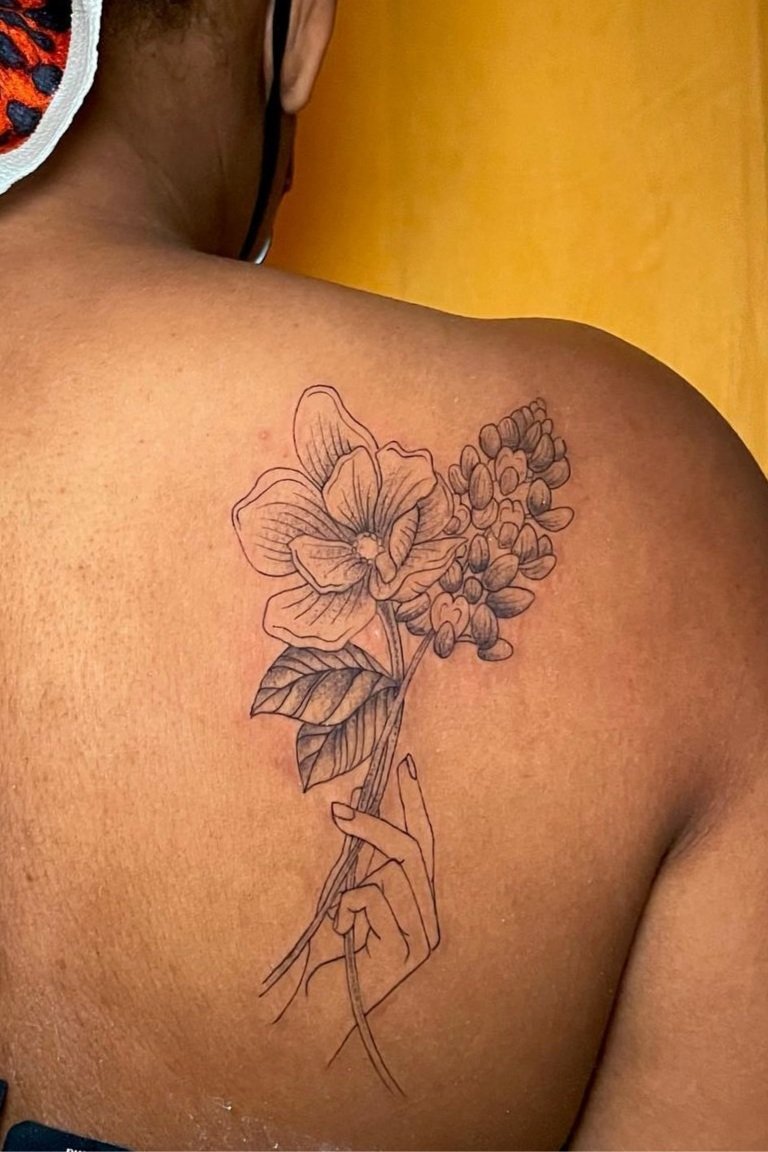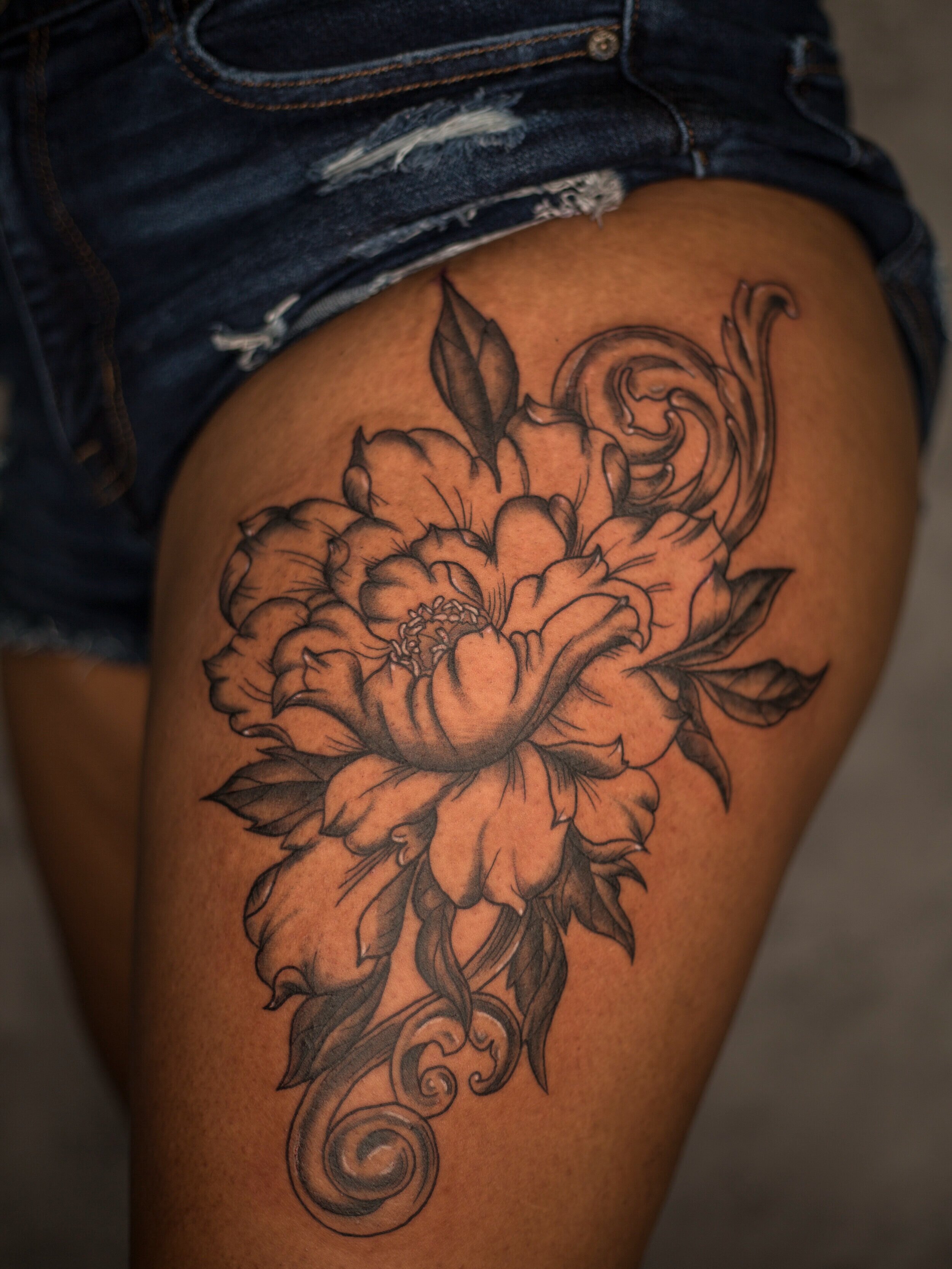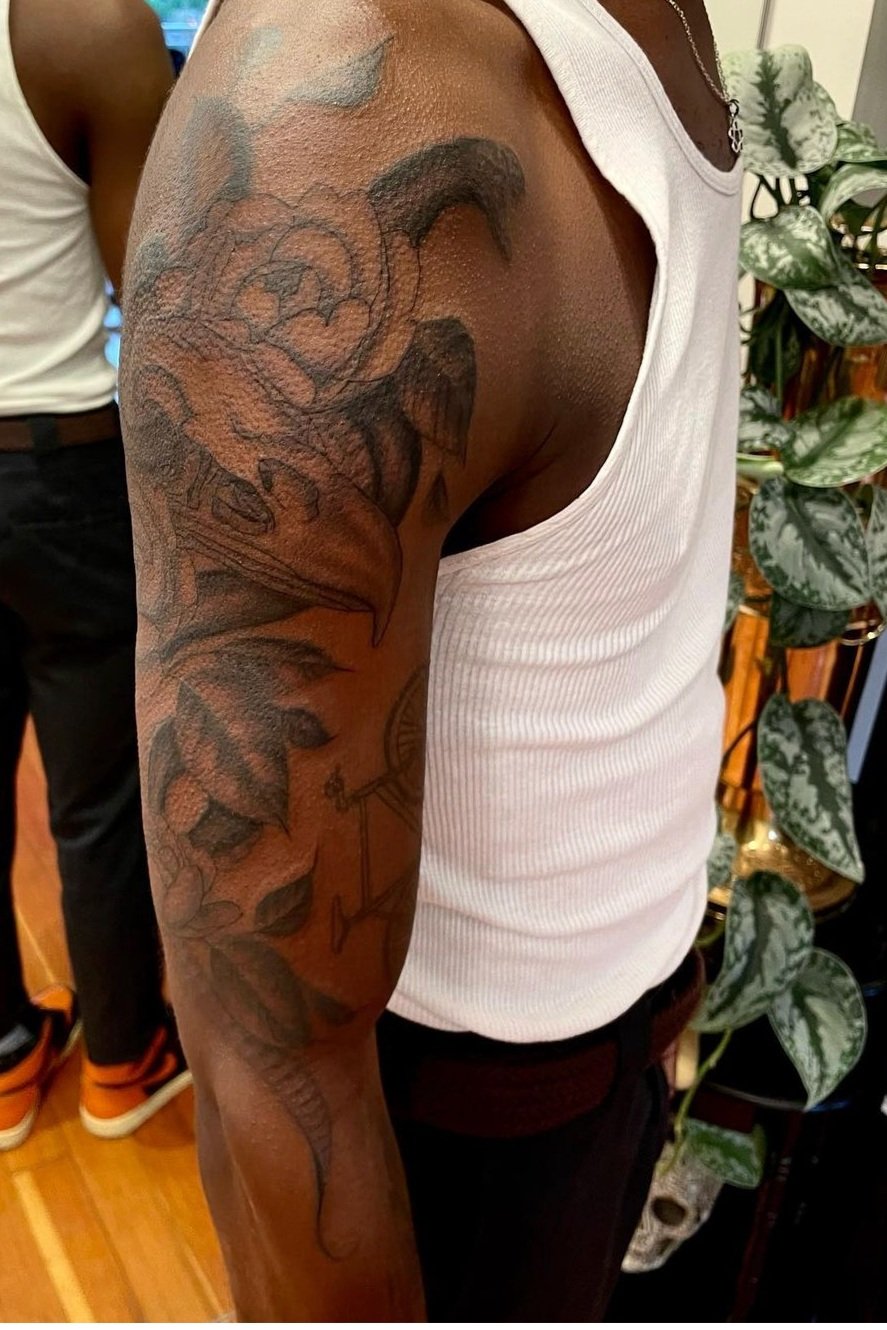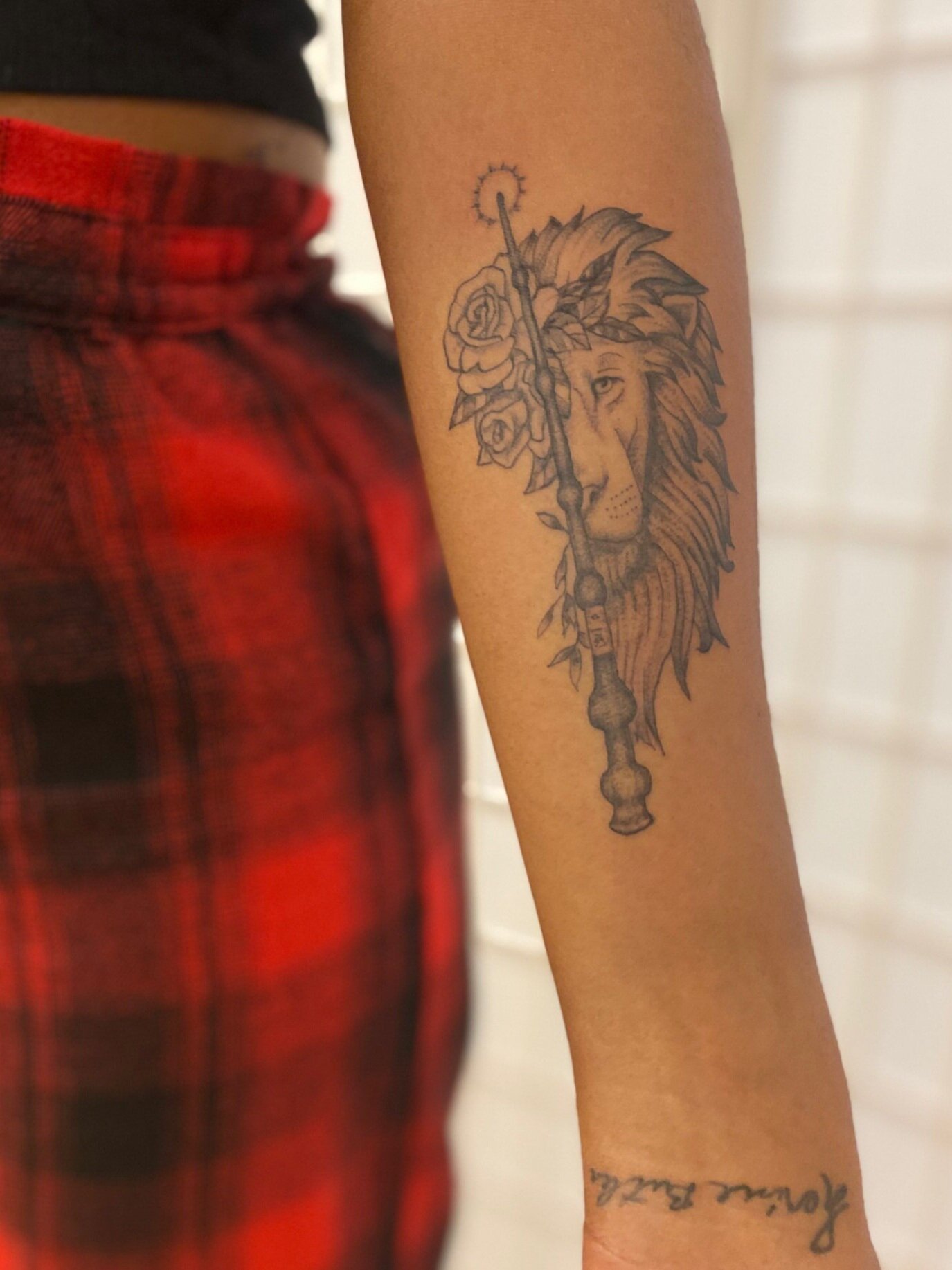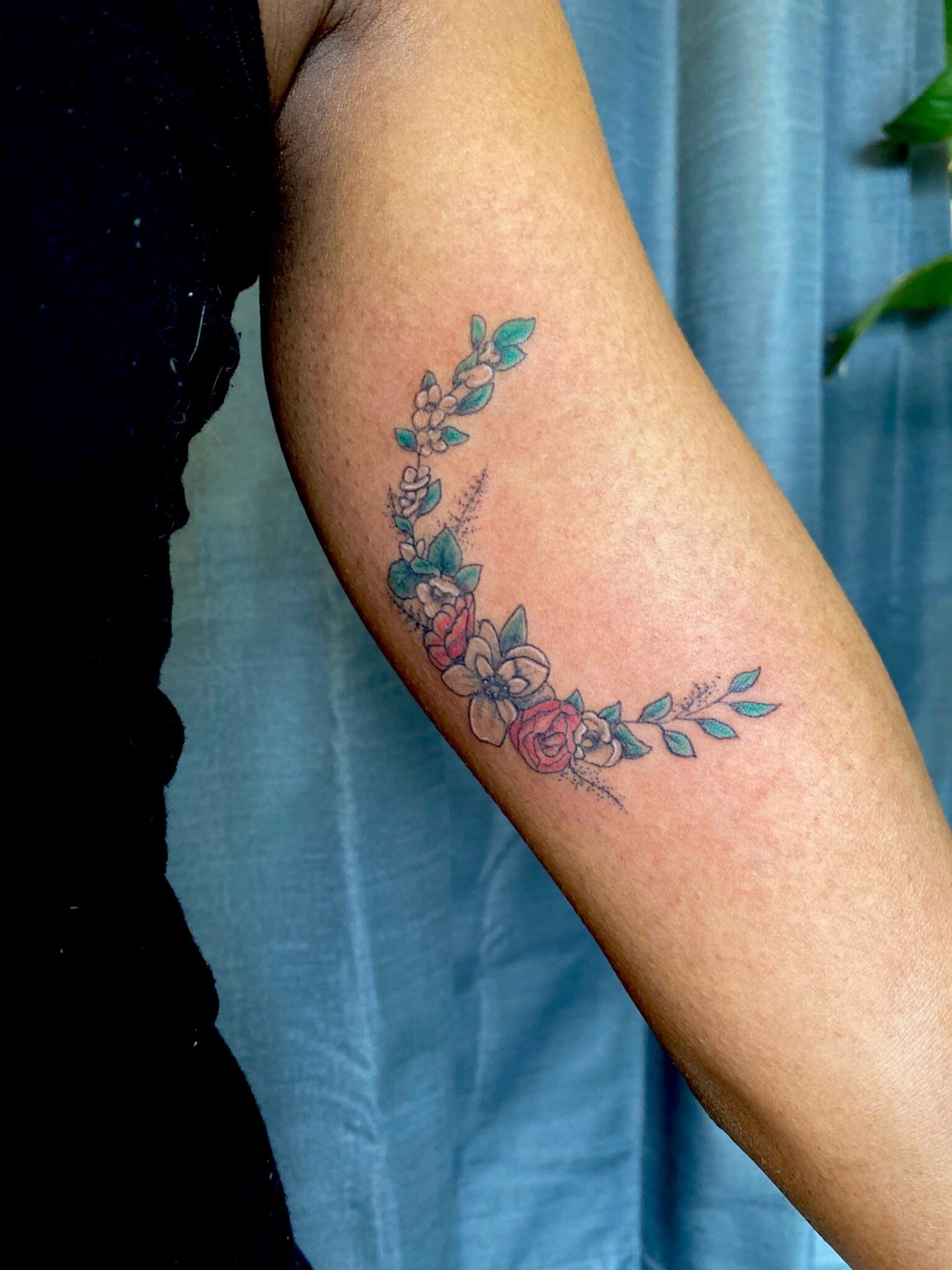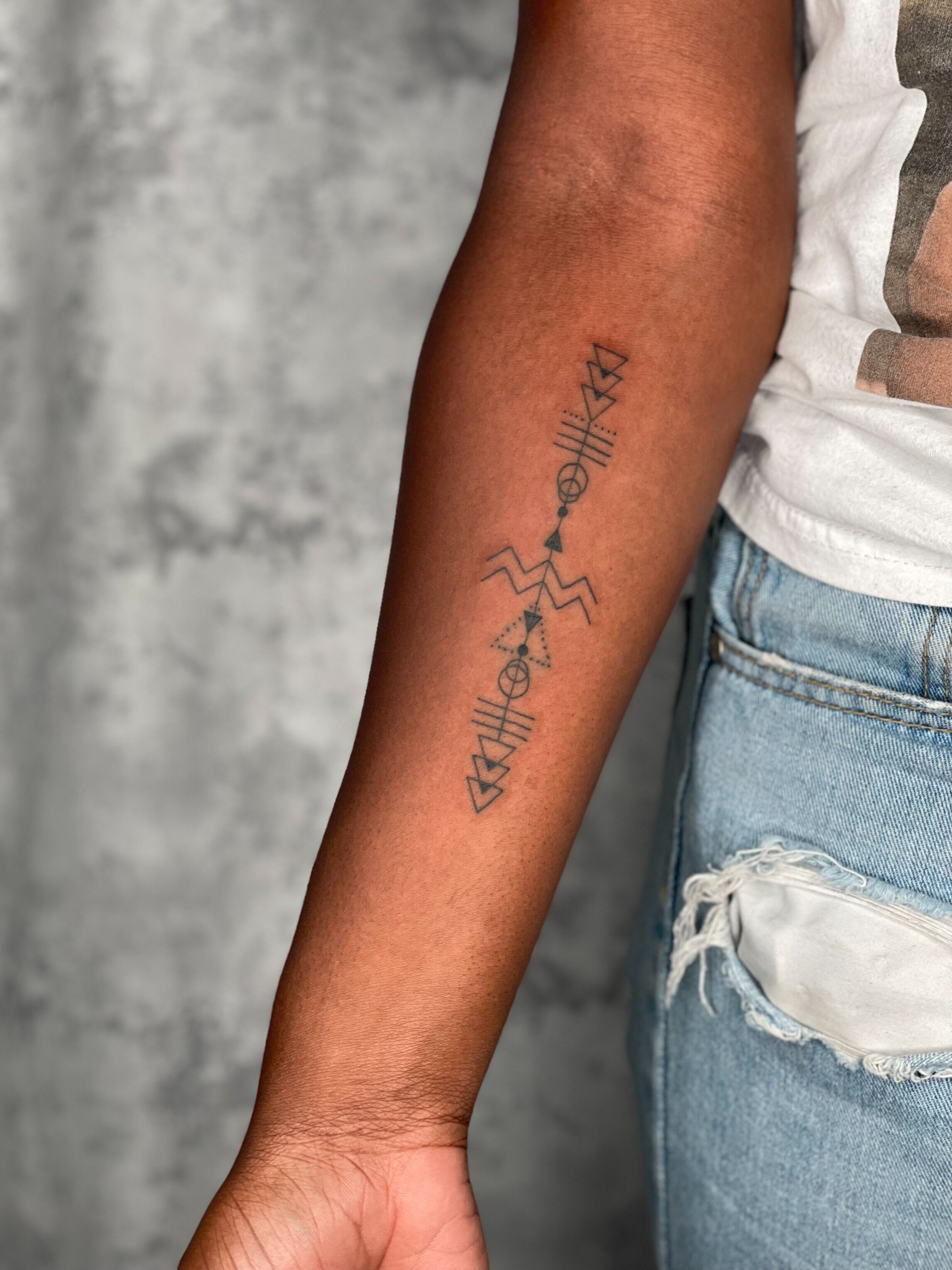
Tattoos and melanated skin.
In our Portland, OR based tattoo shop.
Education, understanding and change.
The modern tattoo industry has been (and continues to be) a primarily white and male dominated space, especially here in Portland, OR. Black and brown people are underrepresented in tattoo culture as tattoo artists and tattoo clients, even though the word tattoo itself originated from the Samoa and Polynesian island word, “tatou” and this type of art has been practiced by almost every human culture in historic times.
Myths and what is true about tattooing Black and Brown skin.
Myth: “Color tattoos don’t work on dark skin.”
Tattoo ink goes into the skin, it doesn’t sit on top, so the color of your skin is like a filter that the ink goes through rather than a blank canvas. Skin grows back over the top of the tattoo during the healing process. Your skin color will dilute the color of the ink that is used, like seeing the color through a tint. For darker skin tones, this means that the colors can end up more muted than on lighter skin tones. Colors don’t show up on darker skin tones in the same way that they do on lighter skin tones but there are colors that compliment any skin tone.
Myth: “Black skin is harder to tattoo and scars more easily.”
The biggest factors determining how “easy” it is to tattoo any type of skin, is genetics and personal skin care not how melanated, or not, the skin is.
Any skin tone can scar if overworked. Skin tone isn’t a factor in scar and keloid production. If an artist goes over the same area too many times or tries to pack in more color trying to get it brighter, the skin can become overworked, inflamed and can potentially scar more easily during the healing process. If that happens, it usually has more to do with the (incorrect) technique of the tattooer than the skin itself.
Myth: “Tattoos look better on light/pale skin.”
The same tattoo design using the same ink color will look different on different skin tones. It would look different on dark skin than it would on light skin and the difference can be celebrated, validated, and normalized, not criticized.
Representation of tattoos on dark, melanated, Black and Brown skin matters. Without representation of tattoos on darker skin, the limited and false ideas of what is beautiful, achievable and “right” will continue to be perpetuated.
By Katrina Zarate
By Jenny Koll
By Katrina Zarate
By Katrina Zarate
Color tests.
Color tests, also known as palette tests or swatch tests, is a process used to test a range of ink colors on clients who want to see how the variations of colors and ink brands will heal for them. Concerns can be visibility on skin tone or allergies to ink colors.
Clients are welcome to request a color test in conjunction with their already scheduled appointment.
Our tattoo artists do offer free color tests for clients with darker (more melanated) skin tones, once a deposit is paid for the actual tattoo session. A color test can be small dots, lines or a simple design that gives you a chance to see how colors heal for you and how they look. Once you've seen the healed results (about 4 weeks), you can confidently choose to go for a larger piece using the pigments that work best.
Tattoos on darker skin tones by Tattoo 34 resident and community tattoo artists.
No filters. Real tattoos on real people.
Help us show more of our tattoos on melanated skin by sharing yours with us!

Help change the tattoo industry in PDX.
Modern tattooing has been (and continues to be) a white and male dominated space. Tattoo 34 is committed to supporting tattoo artists who are BIPOC- Black, Indigenous, People of Color who are working to get into the tattoo industry in Oregon, where a tattoo license is required. To obtain an Oregon state tattoo license, an artist must attend a tattoo school (if they hadn’t previously been tattooing in another state). The tattoo schools and licensing process is expensive (10K+) and can be hard to navigate.
The Oregon tattoo school system is not a favorite but it does provide an opportunity for anyone to get tattoo training (who can afford it). A traditional tattoo apprenticeship only benefits people who can get one.
This is where we saw a need and are starting a fund for aspiring tattoo artists. Our fund will be given out to BIPOC artists who are in the Oregon tattoo school system. We want to help make a more diverse Oregon tattoo industry.
Tattoo 34 and our tattoo artists have already donated knowledge, time and money to several BIPOC artists and we are currently working on growing and implementing this fund.
To donate directly to this fund (100% of the direct donations will go to BIPOC artists in the Oregon tattoo school system) click here:

